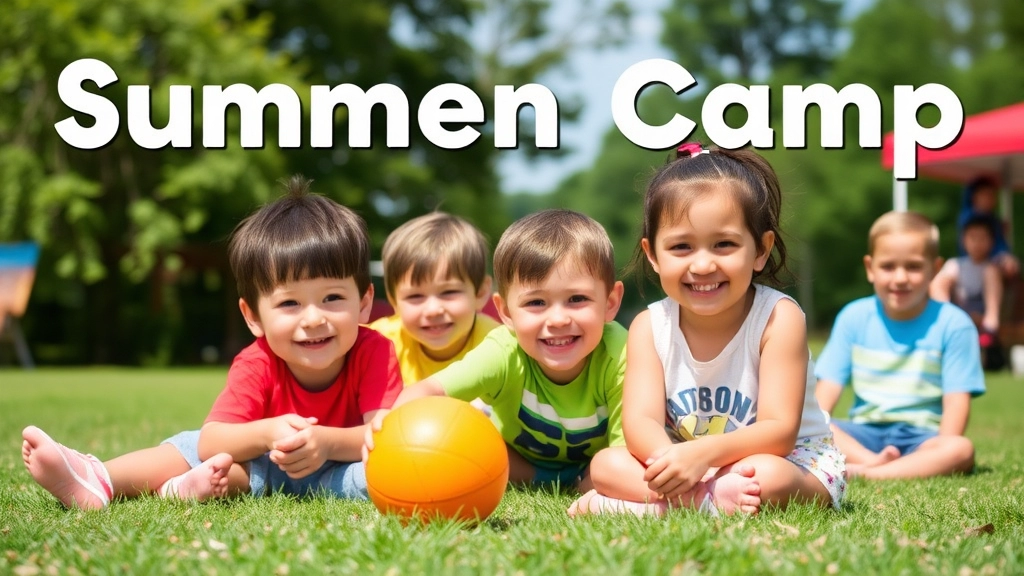Welcome to the Ultimate Guide to Boys and Girls Summer Camps
Welcome to the ultimate guide to Boys and Girls Summer Camps, where we’ll navigate through the myriad options available and help you make the best choice for your child. Whether you’re looking for traditional, sports, adventure, or arts camps, this article covers it all. We’ll explore the benefits of attending summer camps, from boosting social skills to building independence and confidence, ensuring your child has an unforgettable summer.
We’ll dive into popular activities that make summer camps exciting, provide tips on choosing the right camp, and offer practical advice for preparing your child for the adventure ahead. Safety measures, cost considerations, and testimonials from parents and campers will also be discussed to give you a comprehensive understanding. By the end of this guide, you’ll be equipped with all the information you need to register your child for a summer camp that promises growth, fun, and lifelong memories.
Types of Boys and Girls Summer Camps
Alright, so you’re probably wondering, “What kinds of summer camps are out there for my kid?” Let’s get realâthere’s a ton of options. And figuring out the right one can feel like navigating a maze. But don’t sweat it. I’m here to break it down for you.
Traditional Summer Camps
These are your classic go-to camps with a mix of outdoor activities, arts and crafts, and campfires. Think swimming, hiking, and roasting marshmallows. Perfect for kids who love variety and want the full camp experience.
Sports Camps
Got a budding athlete? Whether it’s football, basketball, or even gymnastics, these camps focus on skill development, teamwork, and a whole lot of fun. Your child will come back home not just with better skills but also with stories of epic matches and new friends.
Adventure Camps
These are for the thrill-seekers. Rock climbing, zip-lining, and white-water raftingâthese camps are all about pushing boundaries and embracing the great outdoors. If your kid loves adrenaline, this is their jam.
Arts Camps
These cater to the creative souls. From painting and theatre to music and dance, these camps let your child dive deep into their artistic passions. Imagine them coming back with a newfound love for Shakespeare or a handful of original paintings.
Academic Camps
For the brainiacs, these camps are a hit. These camps focus on subjects like science, maths, and technology. Think robotics, coding, or even space camp. It’s a great way for your kid to stay intellectually engaged over the summer.
Specialty Camps
These cover niche interests. Got a young chef? There are culinary camps. A future vet? There are animal care camps. These camps are all about diving deep into a specific interest and mastering it.
Faith-Based Camps
These camps combine traditional camp activities with spiritual growth. They offer a supportive environment where kids can explore their faith while having a blast.
So, what’s the takeaway here? There’s a camp for every kid out there. Whether they’re into sports, arts, adventure, or academics, there’s something that will make their summer unforgettable. For example, check out the Boys and Girls Club Summer Camp for a well-rounded experience or the Top Theatre Summer Camps for those interested in the arts.
Benefits of Attending Summer Camps
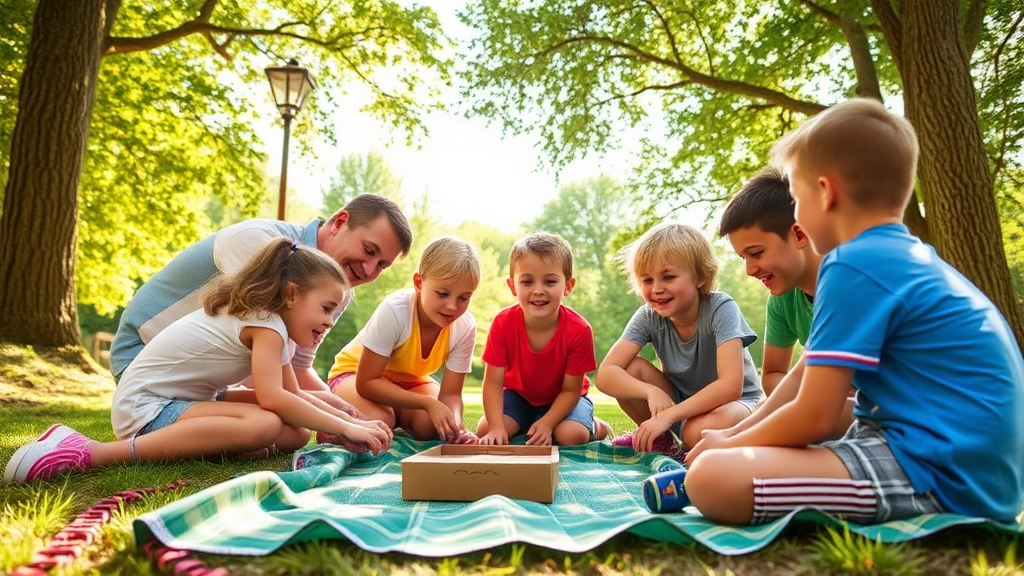
Alright, let’s talk about the benefits of attending summer camps.
Why should you even bother?
Real Questions and Worries
- Will my child make friends?
- Is it worth the money?
- What if they hate it?
These are the worries every parent has. Let’s break it down.
Social Skills
First off, summer camps are a goldmine for social skills.
Kids interact with peers from different backgrounds.
They learn teamwork, communication, and empathy.
It’s like a crash course in socialising.
Independence
Camps teach independence.
Your kid will have to make decisions on their own.
They’ll learn responsibility by managing their stuff and sticking to schedules.
Physical Activity
Let’s face it, kids today are glued to screens.
Camps get them moving.
From swimming to hiking, they’ll get a good dose of physical activity.
New Skills
Camps offer a variety of activities.
Archery, arts and crafts, coding—you name it.
Your child can discover new interests and talents.
Confidence Boost
Trying new things and succeeding boosts confidence.
Even failing and trying again builds resilience.
Lifelong Memories
Camps are where lifelong memories are made.
The stories, the friendships, the experiences—they’ll remember these forever.
Mental Break
Kids need a break from routine.
Camps provide a refreshing change of scenery.
It’s good for mental health.
Real Stories
I remember sending my niece to a summer camp.
She was shy and introverted.
After camp, she was a different person—more outgoing and confident.
Quick Recap
- Social Skills: Interaction and teamwork
- Independence: Decision-making and responsibility
- Physical Activity: Keeps them active
- New Skills: Discover new interests
- Confidence: Boosts self-esteem
- Lifelong Memories: Unforgettable experiences
- Mental Break: Refreshing change
The benefits of attending summer camps are huge.
It’s an investment in your child’s growth and happiness.
Popular Activities at Summer Camps
When it comes to summer camps, the activities are the heart and soul of the experience. Popular activities at summer camps are what make kids excited to pack their bags and head off for a summer of fun and learning. But what exactly do kids get up to at these camps? Let’s dive in.
Outdoor Adventures
Summer camps are synonymous with outdoor adventures. From hiking through lush forests to canoeing on serene lakes, the great outdoors offers countless opportunities for kids to explore and challenge themselves. Here are some of the top outdoor activities:
- Hiking: Kids get to explore nature trails, learn about local flora and fauna, and enjoy the fresh air.
- Canoeing/Kayaking: Perfect for building teamwork and learning new skills on the water.
- Swimming: Whether it’s in a lake or a pool, swimming is a staple of summer camp fun.
- Archery: A great way for kids to develop focus and precision.
- Rock Climbing: Both thrilling and rewarding, this activity builds physical strength and confidence.
Creative Arts
For those who love to express themselves, summer camps often offer a range of creative arts activities. These can be a fantastic outlet for creativity and can help kids discover new passions. Popular options include:
- Arts and Crafts: From painting to pottery, kids can create their own masterpieces.
- Drama: Acting in plays or skits helps kids build confidence and public speaking skills.
- Music: Whether it’s learning a new instrument or singing in a choir, music activities are always a hit.
- Dance: From hip-hop to ballet, dance classes can be both fun and a great way to stay active.
Sports and Games
Sports are a huge part of the summer camp experience. They not only keep kids active but also teach valuable lessons about teamwork and sportsmanship. Some of the most popular sports activities include:
- Football: A classic game that never fails to get kids moving and working together.
- Basketball: Perfect for developing coordination and team play.
- Tennis: Great for improving hand-eye coordination and agility.
- Capture the Flag: A camp favourite that combines strategy, speed, and teamwork.
Educational Activities
Summer camps aren’t just about fun and games; they also offer a chance to learn new things in a hands-on environment. Educational activities can range from science experiments to survival skills. Here are some examples:
- Nature Studies: Learning about wildlife, plants, and ecosystems.
- Astronomy: Stargazing and learning about the night sky.
- Survival Skills: Building shelters, starting fires, and other essential outdoor skills.
- Cooking: Learning to prepare meals, which can be both fun and practical.
Adventure Challenges
For the thrill-seekers, many camps offer adventure challenges that push kids out of their comfort zones and help them build resilience. These can include:
- Zip Lining: Flying through the treetops on a zip line is an unforgettable experience.
- Obstacle Courses: Testing physical and mental agility through various obstacles.
- Ropes Courses: High and low ropes courses that build confidence and teamwork.
Choosing the Right Summer Camp for Your Child
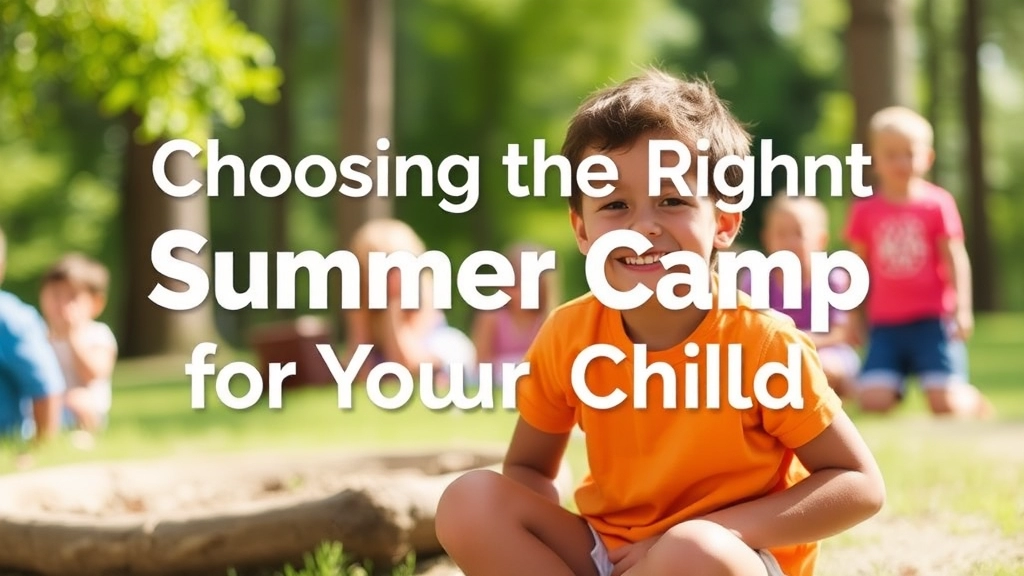
Choosing the right summer camp for your child can feel like a minefield, right?
So many options. So many worries.
“Will my child fit in?”
“Is it safe?”
“What if they hate it?”
Let’s cut through the noise and get to the good stuff.
Start with Your Child’s Interests
First off, what does your kid love to do?
Sports? Arts? Science experiments?
List out their interests and look for camps that match.
Types of Camps
Here’s a quick breakdown to help:
- Sports Camps: Football, basketball, swimming.
- Arts Camps: Painting, drama, music.
- Academic Camps: STEM, coding, language.
- Adventure Camps: Hiking, canoeing, survival skills.
Location, Location, Location
Next, think about location.
Do you want a camp close to home or is your child ready for an adventure further away?
Local camps can be great for younger kids.
For older ones, a bit of distance might be just the thing.
Camp Duration
How long should the camp be?
A week? Two weeks? All summer?
Shorter camps are great for first-timers.
Longer camps can offer deeper experiences.
Budget
Let’s talk money.
Camps can range from budget-friendly to “I need a second mortgage.”
Set a budget and stick to it.
Look for camps that offer scholarships or financial aid.
Visit and Research
Don’t just take their word for it.
Visit the camp if you can.
Talk to the staff. Ask about safety measures.
Check out reviews and testimonials from other parents and campers.
Safety First
Safety is non-negotiable.
Ask about:
- Staff-to-child ratios.
- Emergency procedures.
- Background checks for staff.
Involve Your Child
Lastly, involve your child in the decision.
Show them videos or brochures.
Get their input.
Preparing Your Child for Summer Camp
Worried about sending your child to summer camp? You’re not alone. Many parents have the same concerns about how their kids will adapt to a new environment, make friends, and manage without them. Don’t sweat it â let’s break it down into manageable steps to ensure your child is ready for an awesome camp experience.
1. Start with a Chat
Keyword: Preparing Your Child for Summer Camp
First things first, sit down with your child and talk about what to expect. Address their concerns and get them excited about the adventure. Here are some conversation starters:
- What are you looking forward to the most?
- Is there anything you’re nervous about?
- What activities do you want to try?
2. Visit the Camp Together
If possible, visit the camp beforehand. This helps your child get familiar with the surroundings and meet some of the staff. No surprises when they arrive â just excitement.
3. Pack Smart
Make packing a fun activity. Create a checklist together to ensure nothing is forgotten. Essentials include:
- Comfortable clothes
- Sturdy shoes
- Toiletries
- Favourite book or toy
- Any required medications
4. Practice Independence
Summer camp is a great opportunity for your child to build independence. Before camp, encourage them to:
- Make their own bed
- Pack their own lunch
- Manage a simple daily routine
These small tasks can boost their confidence and ease the transition.
5. Role-Playing Scenarios
Role-playing can be a game-changer. Act out scenarios like making new friends, asking for help, or dealing with homesickness. It’s a fun way to prepare them for real-life situations.
6. Discuss Safety Measures
Safety is a top priority at any summer camp. Reassure your child by discussing the camp’s safety protocols. Highlight key points such as:
- Emergency procedures
- First aid availability
- Supervision and buddy systems
7. Stay in Touch
Let your child know how you’ll stay in touch. Whether it’s through letters, emails, or scheduled phone calls, having a plan can ease their anxiety and yours.
8. Encourage a Positive Mindset
Finally, foster a positive mindset. Remind your child that it’s okay to feel a mix of emotions. Share stories from your own experiences or those of older siblings to show that it’s normal to feel a bit nervous but also excited.
Real-Life Example
When my niece went to camp for the first time, she was anxious about making friends. We role-played different scenarios, and it made a huge difference. She came back with a bunch of new buddies and couldn’t stop talking about all the fun she had.
For more tips on what to bring, check out our Ultimate Packing Guide for Summer Camp. Also, learn about Cabin and Bunk Safety Tips to ensure your child’s stay is secure and comfortable.
Safety Measures at Summer Camps
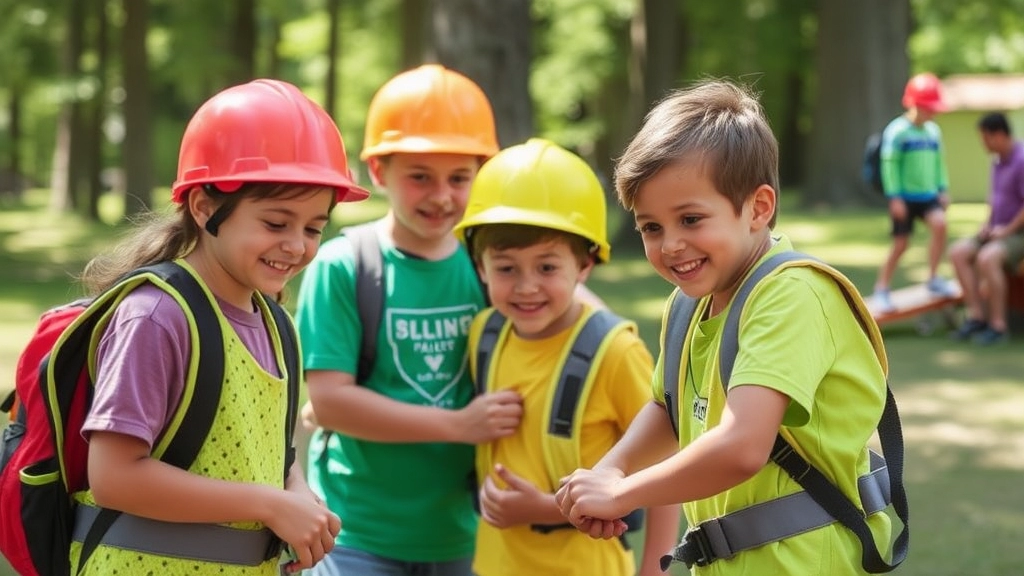
Worried about safety at summer camps? You’re not alone.
We all want our kids to have fun, but staying safe is non-negotiable.
Here’s the lowdown on how camps keep your little ones secure.
Staff Training and Background Checks
First off, camps aren’t just hiring anyone off the street.
- Background checks: Every staff member goes through rigorous background checks.
- Training: They get trained in first aid, emergency protocols, and child supervision.
Knowing who’s looking after your child is crucial.
Medical Facilities and Staff
What if your kid gets hurt?
- On-site medical staff: Most camps have trained medical personnel on-site.
- Medical facilities: They’re equipped to handle minor injuries and illnesses.
- Emergency plans: Camps have clear procedures for emergencies.
Supervision Ratios
Ever worried about your kid getting lost in the crowd?
- Low camper-to-staff ratios: This ensures each child gets the attention they need.
- Buddy systems: Kids are often paired up to keep an eye on each other.
Safety Protocols
How do camps handle unexpected situations?
- Emergency drills: Regular fire and emergency drills prepare everyone.
- Secure perimeters: Camps have secure boundaries to prevent unauthorized access.
Activity Safety
What about the activities?
- Equipment checks: All gear is regularly inspected for safety.
- Qualified instructors: Only trained professionals lead high-risk activities like climbing or swimming.
Communication
Want to stay in the loop?
- Regular updates: Camps often provide daily or weekly updates to parents.
- Emergency contacts: You’ll have direct lines to camp staff in case of emergencies.
Real Stories
I once talked to a mum whose kid went to a camp with top-notch safety measures.
Her son had a minor injury, but the camp handled it so well she felt more confident than ever.
It’s these real-life examples that make a difference.
Cost and Budget Considerations for Summer Camps
Alright, let’s talk money. How much is this summer camp thing going to set you back? It’s a real question, and let’s be honest, it’s probably one of the first things that come to mind when you’re considering sending your kid to camp. So, let’s break it down.
Understanding the Costs:
When it comes to summer camps, the price tag can vary widely. You might be looking at anything from a few hundred to several thousand pounds. Why such a big range? Well, it depends on a bunch of factors:
- Type of Camp: Is it a day camp or an overnight camp? Day camps are generally cheaper.
- Duration: How long is the camp? A week, two weeks, or the entire summer?
- Location: Camps in popular or remote locations might cost more.
- Specialty: Does the camp offer specialised activities like horseback riding or tech workshops? Those extras can add up.
- Facilities: Are we talking basic cabins or luxurious lodges?
Breaking Down the Budget:
Let’s get into some specifics. Here’s a basic breakdown of what you might expect to pay:
| Type of Camp | Average Cost (per week) |
|---|---|
| Day Camp | £150 – £400 |
| Overnight Camp | £500 – £1,500 |
| Specialty Camp | £1,000 – £3,000 |
Ways to Save:
Worried about the cost? Here are some tips to keep it manageable:
- Early Bird Discounts: Many camps offer lower rates if you book early.
- Sibling Discounts: Got more than one kid? Some camps offer discounts for siblings.
- Scholarships and Financial Aid: Don’t overlook these. Many camps have funds set aside to help families.
- Flexible Payment Plans: Spread the cost over several months instead of paying it all upfront.
Real Talk:
I get it; shelling out a big chunk of cash for a summer camp can be daunting. But think about the benefitsâyour child gains independence, makes new friends, and tries out new activities. Sometimes, it’s worth the investment.
Parent Stories:
I remember chatting with a friend over coffee who was initially hesitant due to the costs. She found a camp with a flexible payment plan and some financial aid. Her daughter had an incredible summer, and she felt it was worth every penny.
Final Thoughts:
So, when you’re weighing the cost and budget considerations for summer camps, keep these points in mind. It’s not just about the price tag; it’s about the value your child gets out of it. And trust me, the memories and skills they’ll gain? Priceless.
If you’ve got more questions about costs or need help with budgeting, feel free to drop a comment or check out our guide to the best summer camps in Memphis. And don’t forget, early planning can save you a lot of money and stress in the long run. For more tips on making the most of your summer camp experience, visit our summer camp culture and activities guide.
Testimonials and Reviews from Parents and Campers
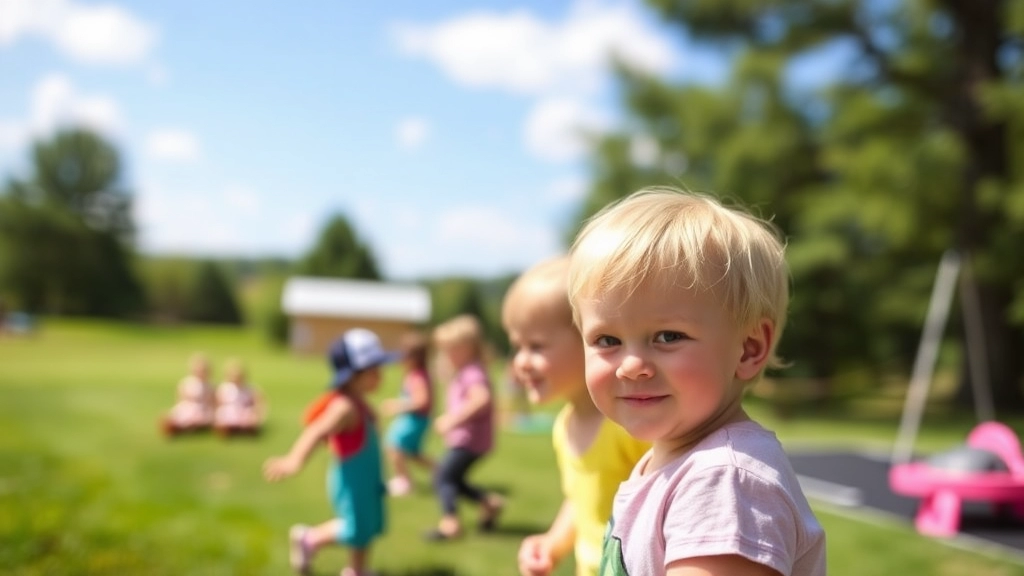
Wondering if summer camp is the right fit for your child?
Let’s dive into what parents and campers are actually saying.
Real Concerns, Real Stories
Parents often worry: Will my child make friends? Is it worth the money?
Campers wonder: Will I have fun? What if I get homesick?
Here’s what they’ve shared:
Parents’ Perspectives
- Connections Made: Many parents rave about how their kids come back with lifelong friends.
- Confidence Boost: Kids return home more independent, and parents notice a big change.
- Skill Development: Parents appreciate the new skills their kids pick up, from archery to teamwork.
Camper Experiences
- Adventure and Fun: Kids love the variety of activities. From canoeing to arts and crafts, there’s never a dull moment.
- Overcoming Fears: Many campers mention how they conquered fears, like speaking in front of a group or trying new sports.
- Sense of Belonging: Campers often feel they’ve found a second home, surrounded by peers who just get them.
Quick Tips from Our Community
- For Parents:
- Visit Reviews Online: Check out parent forums and social media groups.
- Talk to Other Parents: Word of mouth is gold. Ask around for honest feedback.
- For Campers:
- Pack Smart: Bring comfort items from home.
- Stay Open-Minded: Embrace new experiences and people.
Why Testimonials Matter
They give you a real sense of what to expect.
You get insights that brochures and websites just don’t offer.
Frequently Asked Questions about Summer Camps
Alright, let’s dive into the nitty-gritty of summer camps. I know you’ve got questions, and I’m here to dish out the answers like we’re having a chat over coffee. Let’s get to it.
What Are the Different Types of Summer Camps?
You’re probably wondering, âWhat kind of camp should I send my kid to?â Well, there’s a buffet of options:
- Traditional Camps: Think classic outdoor funâcanoeing, hiking, campfires.
- Speciality Camps: Got a budding artist or tech whiz? These camps focus on specific skills.
- Day Camps: Perfect if your kid isn’t ready for overnight stays.
- Adventure Camps: For the thrill-seekers who love rock climbing or rafting.
Why Should I Send My Child to a Summer Camp?
Let’s be real. You want your kid to have the best summer ever, right? Here’s what they’ll gain:
- Social Skills: Making new friends and learning to work in groups.
- Independence: They’ll learn to make decisions on their own.
- Confidence: Trying new activities boosts self-esteem.
How Do I Choose the Right Camp?
Picking the right camp can feel like choosing a Netflix showâoverwhelming. Here’s a quick checklist:
- Interests: What does your child love doing?
- Location: Close to home or a new adventure?
- Budget: What’s your financial comfort zone?
What Activities Can My Child Expect?
Summer camps are packed with activities. Here’s a taste:
- Sports: Football, basketball, swimming.
- Arts: Painting, drama, music.
- Outdoor Adventures: Hiking, zip-lining, kayaking.
How Safe Are Summer Camps?
Safety is a biggie. Camps take it seriously, with measures like:
- Trained Staff: Professionals who know their stuff.
- First Aid: Always on hand.
- Emergency Plans: Ready for anything.
How Much Do Summer Camps Cost?
Costs can vary. Here’s the lowdown:
- Day Camps: Usually more budget-friendly.
- Overnight Camps: More costly but offer a full experience.
- Speciality Camps: Prices depend on the program.
What Do Parents and Campers Say?
Hearing from others helps. Check out reviews and testimonials:
- Parents: Love the growth they see in their kids.
- Campers: Often rave about the friends they make and the fun they have.
How Do I Register for a Summer Camp?
Ready to sign up? Here’s how:
- Research: Find camps that fit your criteria.
- Contact: Reach out for details and availability.
- Register: Follow the camp’s registration process, usually online.
For more information on creating a memorable experience, check out our summer camp ideas and learn about the essential guidelines for safety to ensure a safe and enjoyable time for your child.
How to Register for a Summer Camp
So, you’re looking to register your child for a summer camp, huh?
Let’s cut to the chase.
Here’s how you can get it done without pulling your hair out.
Why Registering Early is Crucial
First off, summer camps fill up fast.
You don’t want your kid to miss out because you waited too long.
Early registration often comes with perks like discounts and first dibs on activities.
Steps to Register
- Research Camps: Check out different camps. Look at their activities, location, and reviews.
- Visit Websites: Most camps have a website. Go there. Look for a “Register” or “Sign Up” button.
- Fill Out Forms: You’ll need to provide details about your child. Name, age, medical info, allergies, etc.
- Pay the Fee: Camps usually require a deposit upfront. Make sure you know the total cost and any hidden fees.
- Confirmation: After you pay, you should get a confirmation email. If you don’t, follow up!
Things to Watch Out For
- Cancellation Policies: Life happens. Know the camp’s refund policy.
- Special Requirements: Some camps need additional forms for things like medication or special diets.
Real Talk: Common Concerns
- “What if my kid hates it?”: Most camps have a trial period or a money-back guarantee. Check their policies.
- “Is it safe?”: Camps should have detailed safety measures. Look for camps accredited by organisations like the American Camp Association (ACA).
Final Tips
- Talk to Other Parents: Word of mouth is gold. Ask other parents for recommendations.
- Read Reviews: Online reviews can give you a real sense of what to expect.
Registering for a summer camp doesn’t have to be a headache.
Follow these steps, and your child will be all set for a summer they’ll never forget.
Got questions? Drop them in the comments below.
Or better yet, share your own camp registration stories.
Let’s make this process as smooth as possible for everyone.
For a comprehensive guide, check out our Ultimate Guide to Kids Summer Camps and learn more about the summer camp scholarships available to help make camp more affordable.
FAQs About Boys and Girls Summer Camps
What are the main benefits of attending summer camps?
Summer camps offer a myriad of benefits including improved social skills, independence, physical activity, new skill acquisition, confidence boosts, lifelong memories, and a much-needed mental break.
Will my child make friends at camp?
Yes, summer camps are designed to foster social interaction and teamwork, helping children make new friends from diverse backgrounds.
How do I choose the right summer camp for my child?
Start by considering your child’s interests, whether they love sports, arts, or science. Look into the types of camps available, the location, duration, and your budget. Visiting the camp and involving your child in the decision-making process can also be very helpful.
What types of summer camps are available?
There are various types of camps including sports camps (football, swimming), arts camps (painting, drama), academic camps (STEM, coding), and adventure camps (hiking, canoeing).
Is it safe to send my child to a summer camp?
Safety is a top priority at summer camps. They employ trained staff who undergo background checks, have medical facilities on-site, maintain low camper-to-staff ratios, and conduct regular safety drills.
How long should the camp be?
The duration can vary from a week to the entire summer. For first-timers, shorter camps are recommended, while longer camps can provide more in-depth experiences.
What should I consider regarding the camp’s location?
Decide whether you want a camp close to home or if your child is ready for an adventure further away. Local camps are great for younger kids, while older children might enjoy being a bit further from home.
Are there financial aid options available for summer camps?
Yes, many camps offer scholarships or financial aid. It’s a good idea to set a budget and look for camps that fit within it.
How do camps handle medical emergencies?
Most camps have trained medical personnel and facilities on-site to handle minor injuries and illnesses. They also have clear emergency procedures in place.
How can I stay updated on my child’s well-being during camp?
Many camps provide regular updates to parents through daily or weekly reports. They also have emergency contact lines for direct communication with camp staff.
What do parents and campers say about their camp experiences?
Parents often note the positive changes in their children, such as increased confidence and new skills. Campers frequently talk about the fun activities, overcoming fears, and the sense of belonging they feel at camp.
How can I reassure my child who is nervous about going to camp?
Involve your child in the camp selection process, show them videos or brochures of the camp, and pack comfort items from home. Encouraging an open-minded attitude can also help them embrace new experiences.
References
-
Benefits of Camp: Why Camp?
-
Choosing the Right Summer Camp for Your Child
-
Summer Camp Safety Tips

